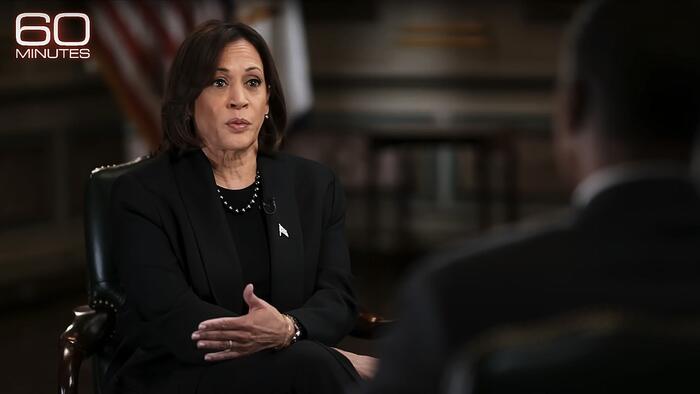A formal complaint has been lodged against CBS News with the Federal Communications Commission (FCC) concerning their editing of Kamala Harris’ interview on the program 60 Minutes. The complaint, issued by The Center for American Rights (CAR), accuses CBS of “significant and intentional news distortion,” arguing that the network has fundamentally misrepresented the interview’s content. This meticulous editing is said to have served one primary goal: to present Harris in a more favorable light, thereby minimizing the perception of incompetence that surfaced during her responses. This controversy has sparked intense debate about journalistic integrity and the ethical implications of altering interview footage for narrative alignment.
The complaint highlights that CBS News stood accused of manipulating the original content by replacing portions of Harris’s answers with unrelated sentences she had previously spoken in the same interview. Social media commentary has drawn attention to the severity of the editing, with critics referencing it as a serious breach of journalistic practices, equating the actions to fraud. The side-by-side comparisons of the edited and unedited segments of the interview have made it evident that CBS engaged in a degree of alteration that could undermine the authenticity of the news it presents to the public. Such practices raise concerns about the network’s commitment to factual reporting and impartiality.
According to Fox News, CAR asserts that the discrepancies in Harris’s edited interview epitomize deliberate distortion of news content, constituting a violation of the FCC’s standards for broadcasters regarding public interest obligations. The complaint demands that CBS release an unedited transcript of the interview, arguing that this is necessary to correct the manipulated narrative. CAR’s president, Daniel Suhr, has emphasized that the issue at hand transcends just one interview or one network; it raises fundamental questions about media trustworthiness during an election season critical for national security and international relations.
Suhr further argues that when major broadcasters resort to manipulating interview content to distort reality, they compromise the very foundation of democracy. The implications of such actions go beyond mere media missteps; they suggest a disturbing trend in which the public’s right to truthful journalism is jeopardized. The call for a swift response from the FCC underscores the urgency of restoring public confidence in the media, especially in light of deepening divisions in society and the pivotal decisions that lie ahead for the nation.
Despite CBS News’s attempts to portray Kamala Harris as coherent and well-prepared, observers noted that her performance came across as unsteady and convoluted even after the editing efforts. These observations underscore an ongoing narrative questioning Harris’s qualifications and preparedness for her role in the current administration. Broadcast journalism’s reputation hangs in the balance as viewers and critics alike scrutinize how news is crafted and presented in an era increasingly defined by media manipulation and misinformation.
This incident serves as a reminder of the critical role that media plays in shaping public discourse and the potential consequences when the line between editing for clarity and altering for advantage is crossed. As the complaint unfolds, the broader implications for media practices are sure to be debated, as societal confidence in journalistic integrity is essential for informed citizenship. The call for transparency, particularly during such a consequential time in American politics, reflects a collective yearning for accountability and ethical standards in journalism that prioritize the truth above all else.

